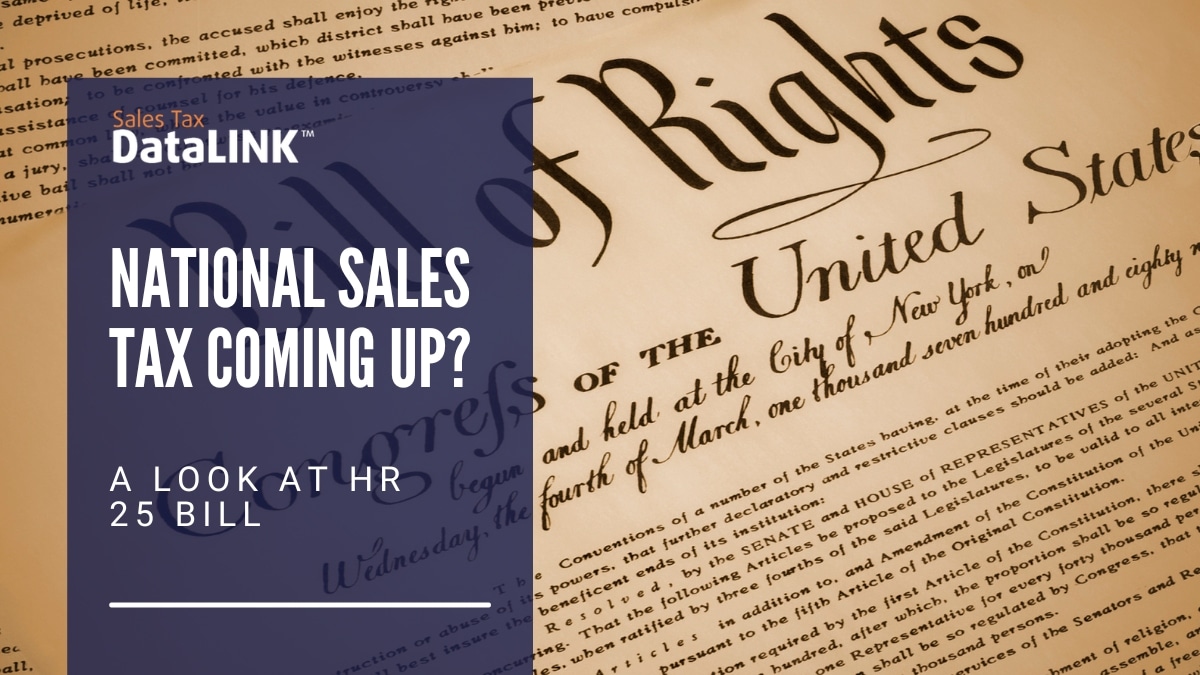The House Ways and Means Committee held a Tax Policy Subcommittee hearing on the possibility of establishing a national sales tax rate, which would help simplify the sales tax experience.
Currently, individual states and other tax jurisdictions may differ not only on the percentage of sales tax collected but also on what items are taxable. Headlines feature companies moving from one town to another to avoid complex sales tax laws, consumers crossing state lines to shop, and widespread failure to comply with confusing regulations. The complexity of sales tax regulations also makes it very difficult to apply sales tax rules to e-commerce.
HR 25, a bill that describes itself as a law “To promote freedom, fairness, and economic opportunity,” proposes disbanding the IRS, giving up income tax, payroll taxes, estate, and gift taxes, and instituting a national sales tax instead. This would involve repealing the 6th Amendment to the Constitution. The goal would be to tax all goods and services — but only once. A ‘monthly family consumption allowance’ would be provided to even out the effects of the sales tax on lower-income individuals. The bill covers 131 pages, but doesn’t, economists say, “deal with the question of what the national sales tax rate would be.” 23% is the commonly accepted number, but researchers at the Brookings Institution say that the rate would actually have to be at least 31 percent to avoid serious federal revenue losses.
HR 25 is just one of the proposals considered in the hearing, but it gives an example of the kind of out-of-the-box thinking being discussed by the committee. Participants in the hearing expressed frustration, however, that hearings don’t seem to lead to action. Perhaps a simple national sales tax is in our future. In the meantime, you need a robust sales tax compliance solution. SalesTaxDataLINK has a full suite of software products, including web-based options, that make it easy to be accurate.




